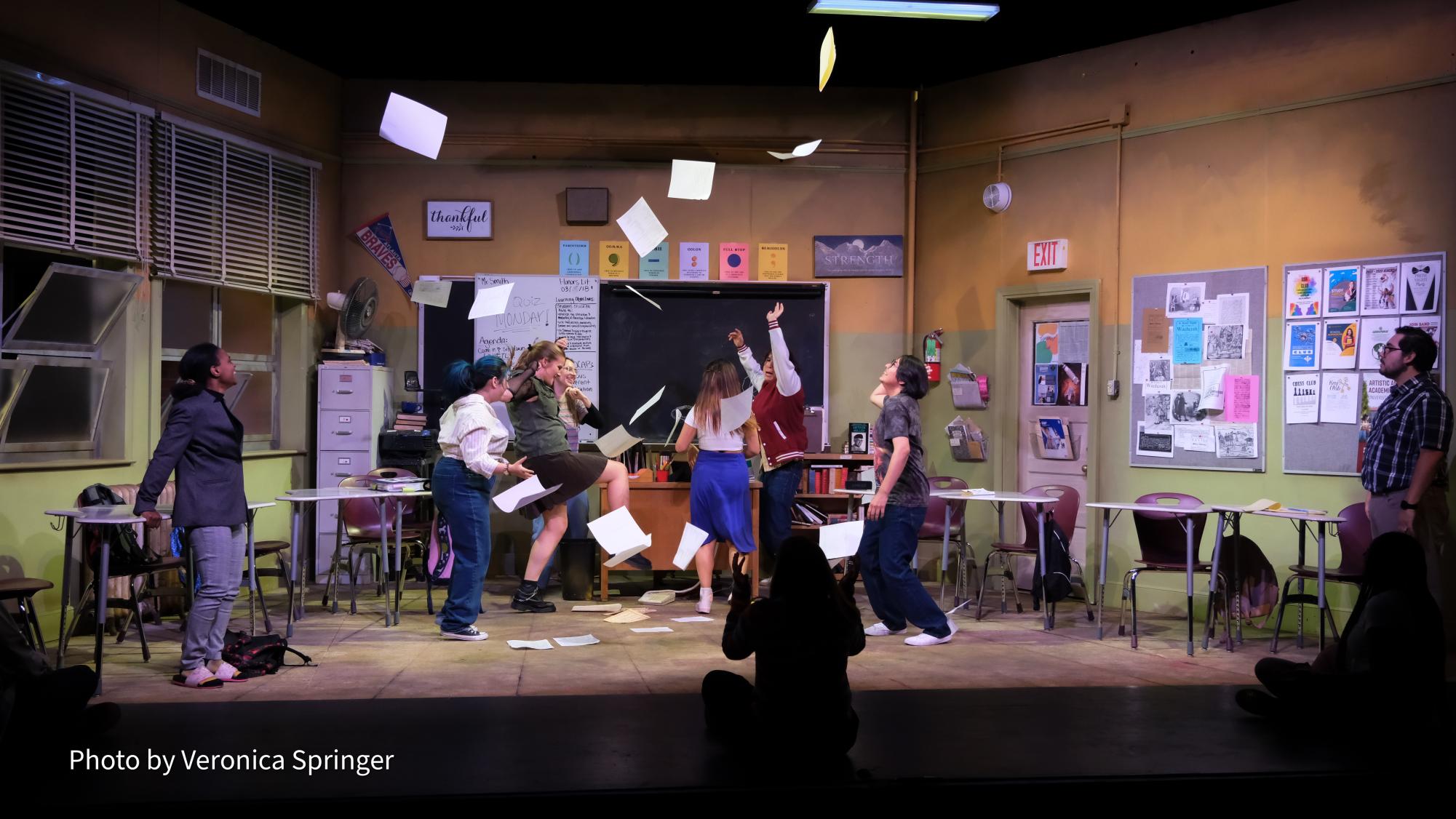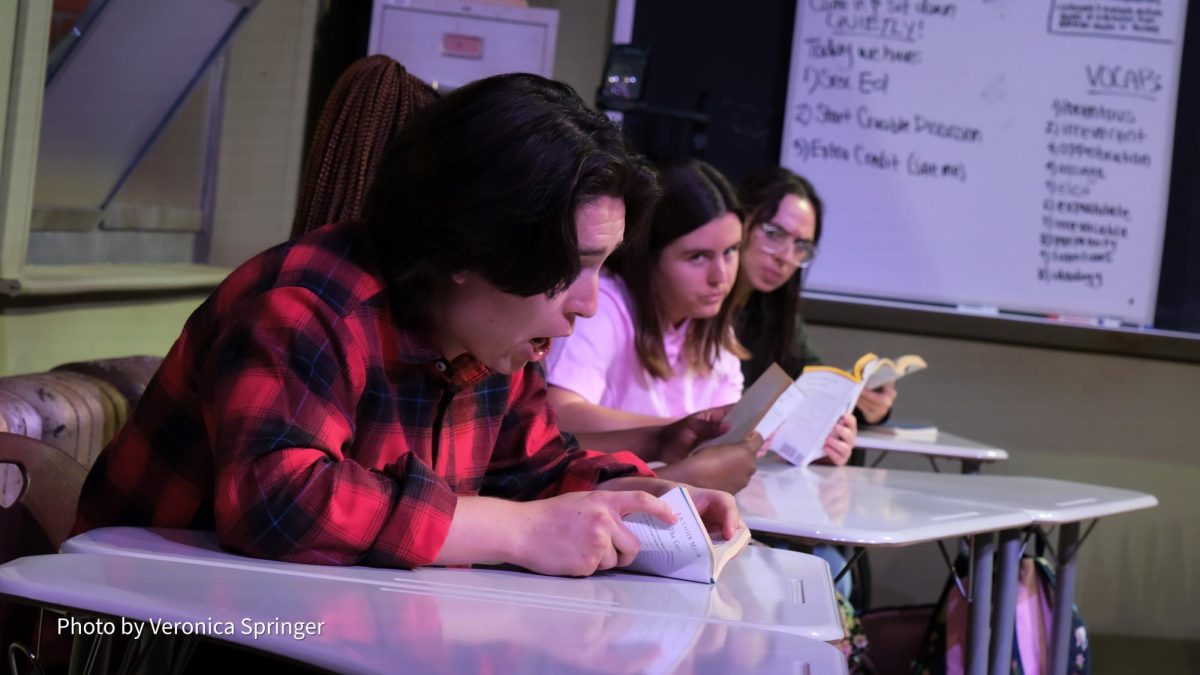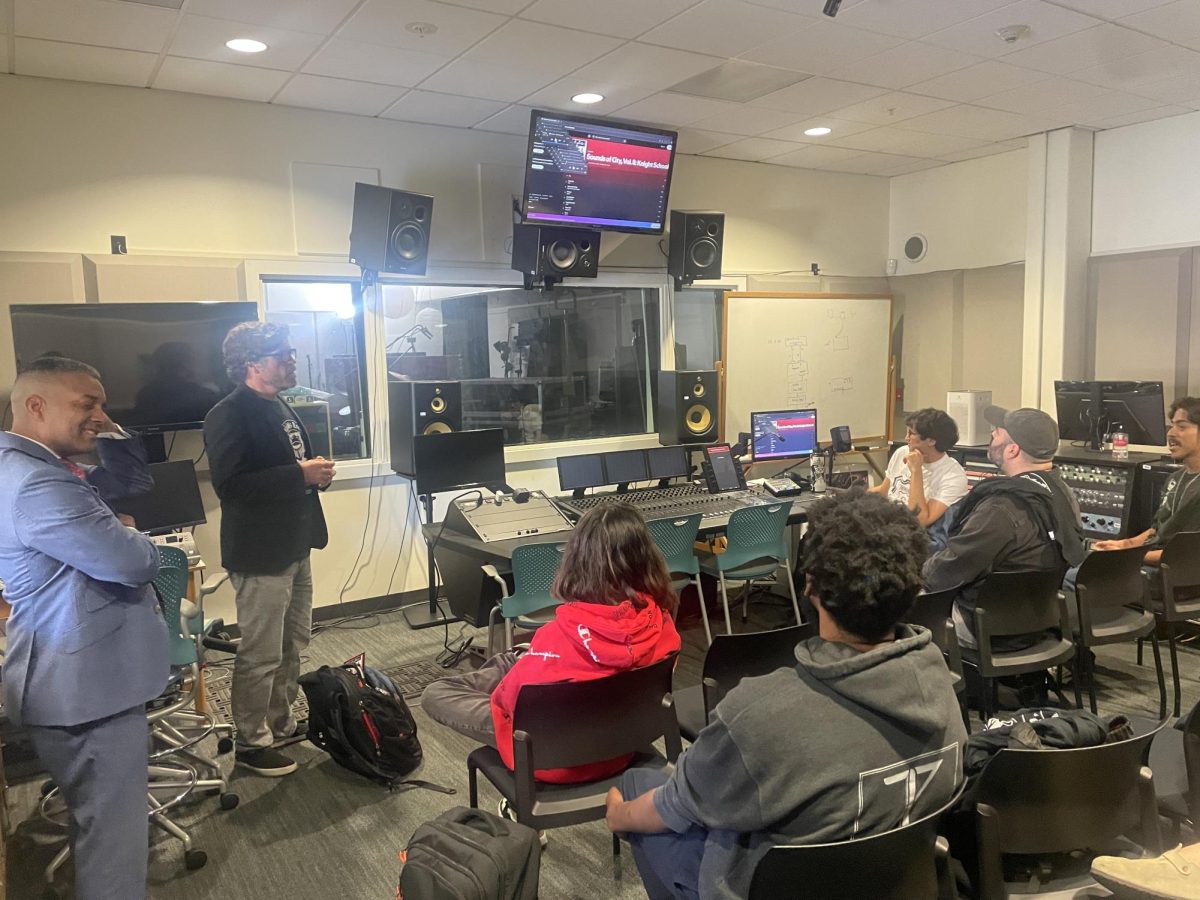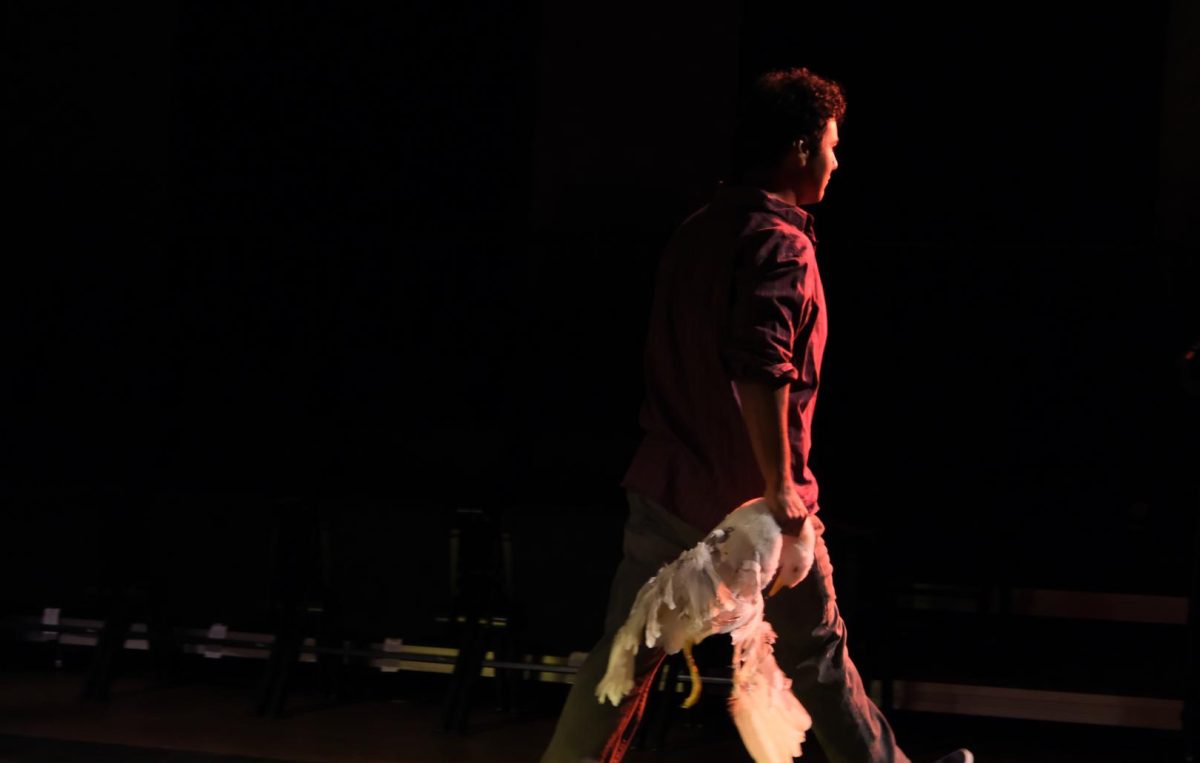The San Diego City College Dramatic Arts’ first production of the year, “John Proctor is the Villain,” written by Kimberly Belflower, opens at the Saville Theatre Oct. 4.
Belflower crafts a contemporary narrative set in a modern high school, where themes of power dynamics, toxic masculinity and feminism are intricately woven into the fabric of the story.
The play, directed by Katie Rodda, reimagines the characters from Arthur Miller’s “The Crucible,” placing them in a world that reflects today’s societal issues and delves into complex themes as present today as they were in the time of the Salem witch trials.
“I read ‘The Crucible’ like everybody else in high school and I saw the movie in ‘96 with Daniel Day-Lewis when it came out,” Rodda said. “It didn’t occur to me to question the motivations and to really look at the relationship between John Proctor and Abigail Williams, which is very problematic.”
At the center of the story is Mr. Smith, a high school teacher, played by a likable Jerry Rodríguez. Smith becomes embroiled in a scandal when accusations of inappropriate behavior with a student surface. These allegations ignite a firestorm within the school community and expose the fraught nature of toxic masculinity.
The narrative also focuses on Shelby, played by Presley Cooper, and her childhood friends Raelynn, played by the charismatic Clara Feng; Beth, played by Paige Lee; and Ivy, played by Lauren Harry. The teens grapple with Shelby’s agency and the pain of betrayal.
Cooper’s performance masterfully portrays the tension between loyalty and self-empowerment, reflecting the challenges women face in asserting their voices in a male-dominated environment. As she navigates her feelings of hurt and anger, Shelby’s journey highlights the importance of female solidarity and the fight for respect in a world where women are often pitted against one another.
“One thing that I personally really like [about] Shelby is that no bridge is ever truly burned fully,” Cooper told City Times Media. “You can always try and come back to those relationships where it’s like, I fucked this up, but I still want to make it up to you, and I want to have that connection again.”
Shelby, a student whose accusations spark the conflict and represent the power dynamics at play between the students and teachers. Her actions are fueled by a desire for control and revenge, showcasing how societal pressures can distort personal motivations. Shelby’s character raises questions about the consequences of wielding power, especially in a climate where young women are encouraged to speak out against injustice, yet face backlash for doing so.
Throughout the play, Belflower addresses the toxic environments that can exist in schools, examining how rumor and reputation can become weapons that dismantle lives. The students’ reactions to the scandal reflect a broader societal struggle with accountability, consent and the difficulty of navigating relationships in an age of heightened awareness around gender dynamics.
“They [the group of friends] remind me so much of my time as a teenager,” said Lee. “I think it’s just navigating girlhood, and there’s a lot of questioning, like, what’s right and what isn’t right, especially, [given that] they live in a small town in Georgia.”
The climax of the play brings these themes to a head as the characters confront their truths and grapple with the consequences of their actions.
“John Proctor is the Villain” serves as a powerful exploration of contemporary issues, blending history with the present day, depicting how power, gender, and morality intersect in the lives of today’s youth. Belflower’s work is implemented dynamically through Rhodda’s direction and invites audiences to reflect on the complexities of identity, the impact of societal expectations and the ongoing struggle for justice in a world that often remains divided along gender lines.
Tickets for “John Proctor is the Villain” can be found here. The production opens on Friday, Oct. 4 at 7:30 p.m., with shows Saturday Oct. 5 at 2 p.m. and 7:30 p.m.. An encore weekend begins on Thursday, Oct. 10 and runs through Saturday, Oct. 12. For more information check the San Diego City College Dramatic Arts website or go to sdcitytimes.com for more.









